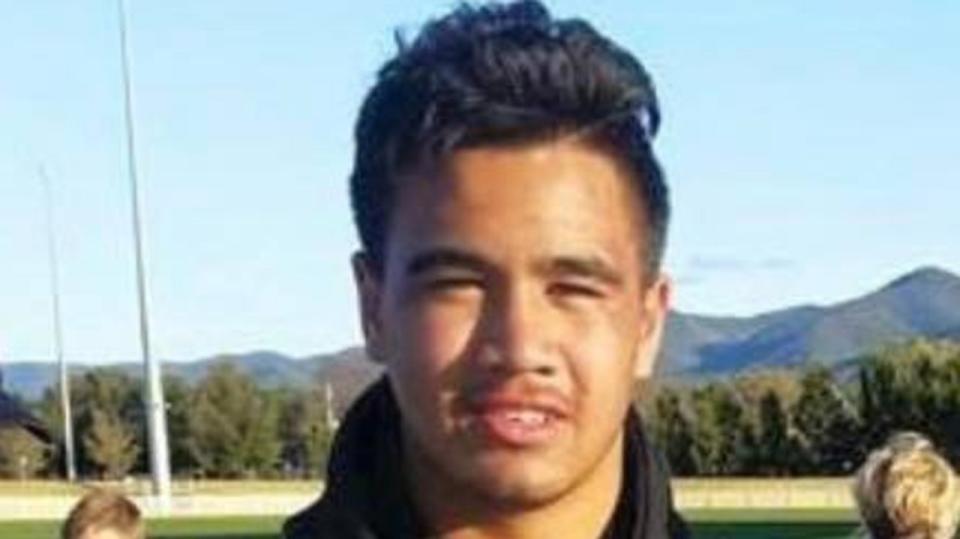‘Inappropriate’ session before star’s death

A 20-year-old Manly Sea Eagles player was put through an “unnecessarily and inappropriately tough” training session before his sudden collapse, a court has heard.
Keith Titmuss lost consciousness immediately after a 139-minute training session at the team’s headquarters on Sydney’s northern beaches on November 23, 2020.
A coronial inquest into his sudden death heard several experts concluded the forward was suffering from exertional heat stroke when he had a seizure at an indoor facility.
On Friday, counsel assisting the coroner Adam Casselden SC said the evidence before the coroner showed the training session had been “objectively tough”.
“It was unnecessarily and inappropriately tough, given it was the first extended training session of the new season,” he told the NSW State Coroners Court.
“With the benefit of hindsight, (it was) an inappropriately high level of intensity and not of a safe level or environment.”

The court heard the training lasted for more than two hours and encompassed both an outdoor session and indoor session in a “hot and stuffy” gym.
Mr Casselden noted the indoor session was short but intense, and its difficulty was compounded by the fact it followed on from a gruelling outdoor session.
Mr Titmuss’ teammate and childhood friend Josh Schuster told the inquest the training was “one of the toughest training sessions I’ve ever done”.
However, former Manly Sea Eagles coach Des Hasler rated it as a “six or seven” out of ten and said the team had been encouraged to take breaks if they were struggling.
Mr Titmuss had gained four kilos during the off season and his fitness test scores suggested he was “the least fit member of the squad”, Mr Casselden said.
He said the training had been “inappropriate” for someone of Mr Titmuss’ fitness level after an off-season break, and pointed to the need for individualised training programs.
His higher body mass and lower aerobic fitness levels were risk factors that contributed to Mr Titmuss overheating from exertion on the “mild” 24C day, experts told the inquest.
He was described as “screaming” and thrashing around the indoor gym as he suffered a seizure after complaining of cramps.
A paramedic who treated the NRL rising star said his temperature was nearly 42C, which was the highest they’d ever seen.

Mr Casselden said none of Mr Titmuss’ teammates, Manly staff or paramedics could be criticised for not recognising the “unusual signs” of Mr Titmuss’ heat exertion.
However, he noted it was “regrettable” the death had occurred only two years after Manly star Lloyd Perrett survived a “near miss” when he collapsed from heat exertion during training.
Mr Casselden suggested the coroner recommend that Manly and the NRL use Mr Titmuss’ tragic death as a case study for education and awareness around heat illnesses.
The counsel assisting the coroner made a number of recommendations around improving the NRL heat policy amid an ongoing independent review by two heat illness experts.
In light of the humid conditions inside the gym, Mr Casselden suggested the policy should clarify guidelines applicable to indoor and outdoor training sessions as well as games.
Consideration should also be given to whether NRL should enforce changes to training sessions based on environmental factors such as heat, he told Deputy State Coroner Derek Lee.
Mandating a two-week acclimatisation period when players return to training from an off-season and ensuring a medical officer signs off on training programs were also recommended.
Another key focus should be implementing screening for players at risk of heat illness and classifying them to ensure tailored training sessions, Mr Casselden said.
Mr Titmuss’ family requested the NRL enforce mandatory reporting of all heat related injuries in order to create a comprehensive understanding of the pervasiveness of the issue.

In his closing submissions, Mr Casselden praised the NRL and Manly for acting in a “timely manner” after the death of a “well loved and admired man”.
“Both Manly and the NRL have already taken positive, proactive, and immediate steps towards awareness and education about exertional heat stroke,” he said.
Both the code and its club said they would welcome the findings from the inquest into Mr Titmuss’ death.
Manly Sea Eagles lawyer Peggy Dwyer SC said she hoped the conclusions about heat illness would extend to “all teams in the NRL and hopeful codes beyond the NRL”.
At the time of his death, Mr Titmuss was considered as being on cusp of his big break after being elevated to the club’s top-30 squad.
“His extraordinary skills and personality will never be forgotten by Manly,” Ms Dwyer said.
“His legacy as a player and a person will forever live on.”
